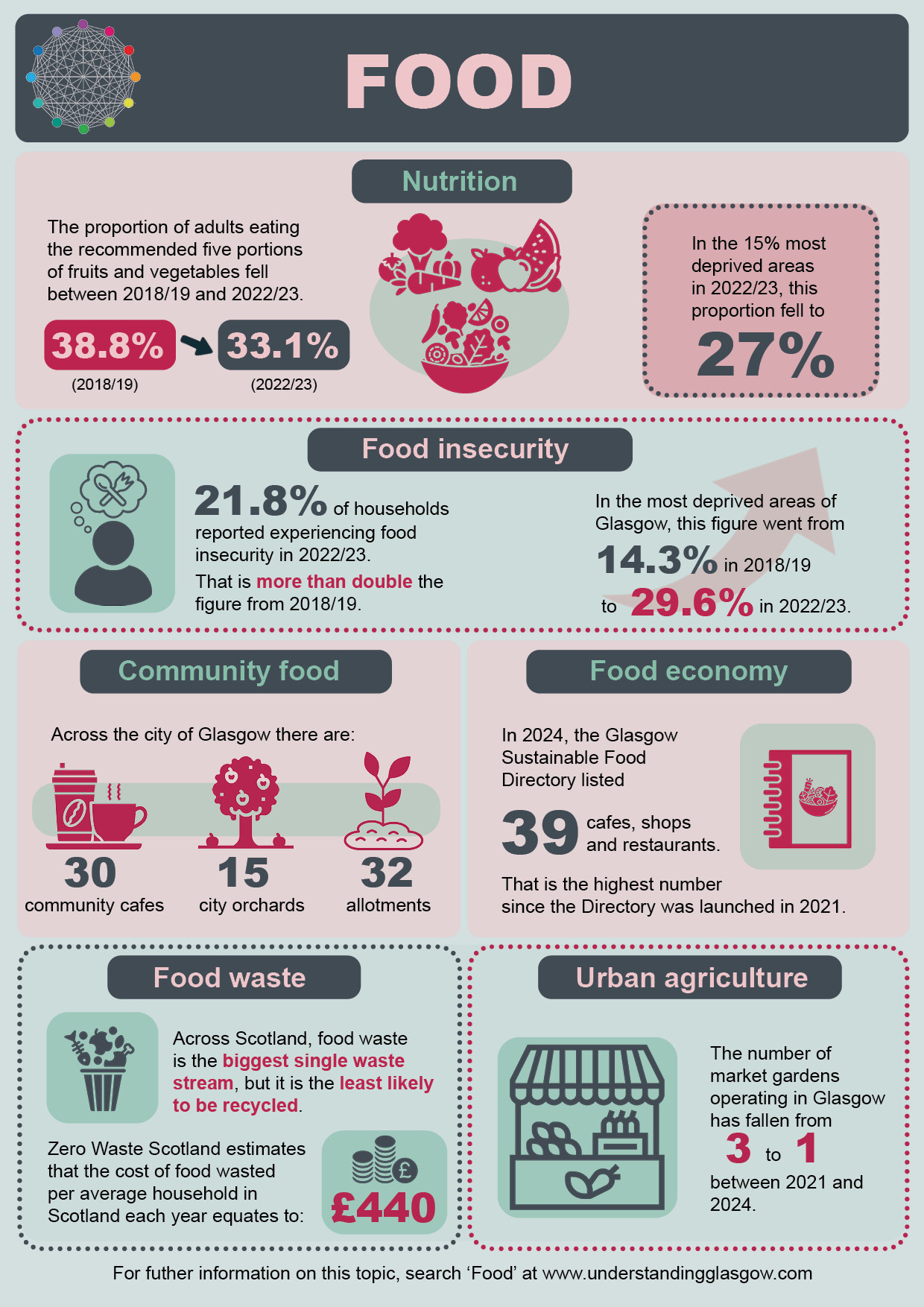Food overview
This section currently includes information and indicators relating to the themes of the Glasgow City Food Plan (GCFP). Launched in 2021, the GCFP is a ten-year framework to build a fairer, healthier and more sustainable food system in Glasgow. Overseen by the Glasgow Food Policy Partnership (GFPP) which reports to the Community Planning Partnership via the Public Health Oversight Group, and adapting the Sustainable Food Places (SFP) approach, the Food Plan seeks to increase the pace and scale of progress by improving coordination and collaboration on existing work as well as initiating new developments.

Click here to download the Food infographic.
The themes of the Food Plan are: food insecurity (fair food for all), community food, catering and procurement, food economy, food waste, urban agriculture, and children and young people.
Food insecurity and nutrition: Eating a nutritious diet is important for health and wellbeing. In Glasgow, and in Scotland, the recommended Scottish Dietary Goals have not been met in many years for fruit and vegetables, oil fish and fibre intakes. The most recent data from the Glasgow Health and Wellbeing Survey 2023 found that the proportion of adults eating the recommended five portions of fruit and vegetables had fallen on average from 38.8% to 33.1% between 2018/19 and 2022/23.
In the most deprived 15% of areas, the proportion of adults eating the recommended amount of fruit and vegetables was lower at 27%.
Food insecurity has increased in Glasgow, like other parts of the UK. In 2022/23 the proportion of households reporting experience of food insecurity was 22%, more than double the figure from 2018/19. In the most deprived areas, the figure has risen from 14% to 30%.
Community Food: Glasgow has a vibrant and active community food sector. There are 30 community cafes, 15 city orchards and 32 allotment sites across the city.
Food Economy: In 2024 the number of organisations listed on the Glasgow Sustainable Food Directory increased to 39 cafes, shops and restaurants, the highest since the directory was launched in 2021.
Catering and Procurement: The public sector is a large provider of food. For example, Glasgow City Council catering services serve approximately 34,000 meals per day in 300 education establishments and NHS Greater Glasgow and Clyde produce around 10,000 meals in their food production unit.
Food Waste: Across Scotland, food waste is the biggest single waste stream, but is least likely to be recycled.
Urban agriculture: The number of market gardens operating in Glasgow has fallen from three to one in the period 2021 to 2024.
The data on this Understanding Glasgow website come from a variety of administrative sources and surveys, and the frequency of updates to these sources varies. The graphs and text on each page should indicate the period to which an indicator refers. In some cases, where more recently published data are not available, we still use older published sources, such as the 2011 Census.
Notes
Many of the trends described above have been strongly influenced by the global COVID-19 pandemic (2020-2021) and by recent welfare policy changes.
Page last updated May 2025.

